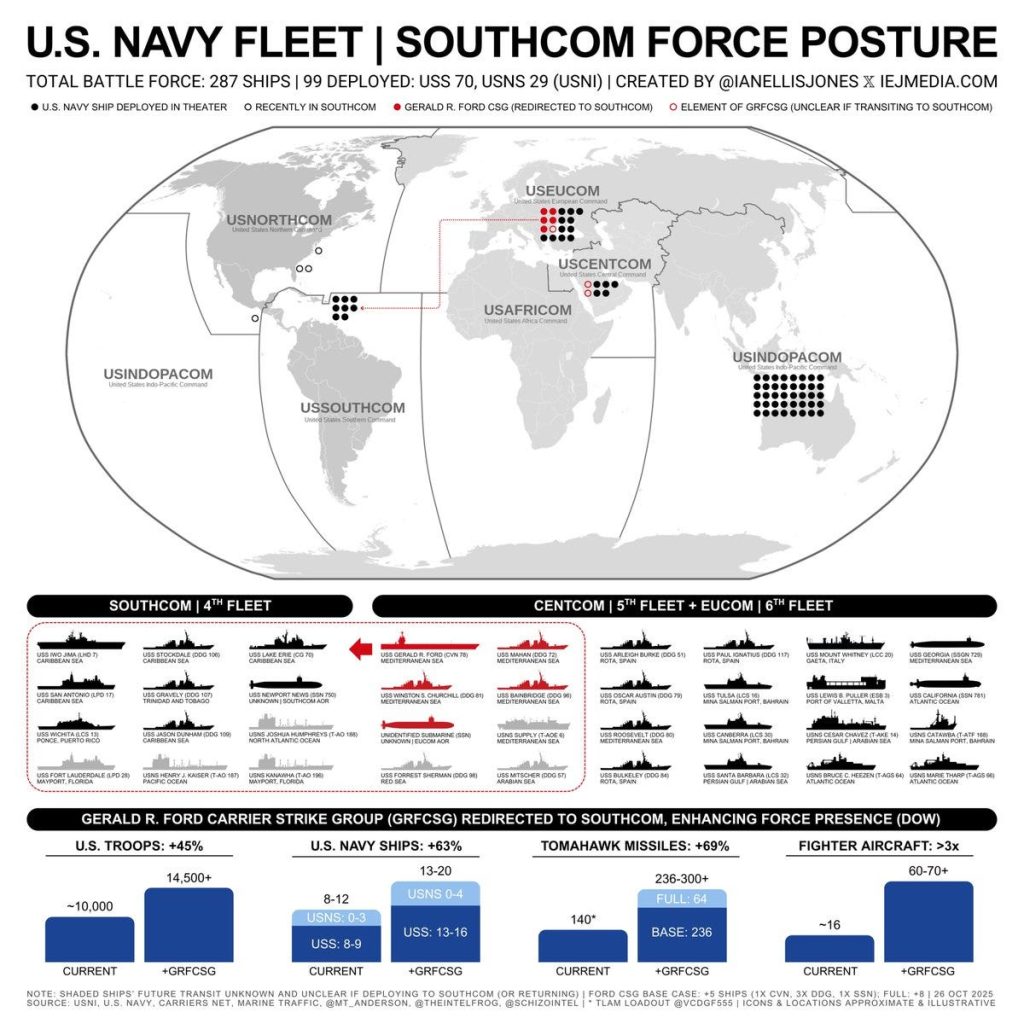In a move that’s already raising eyebrows from the Med to Maracaibo, the Pentagon announced Friday that the USS Gerald R. Ford and its strike group are being pulled from the Mediterranean and redeployed to U.S. Southern Command — marking a major shift in posture and a not-so-subtle warning shot aimed squarely at Venezuela and Colombia.
Defense Secretary Pete Hegseth gave the order himself, according to a statement from Pentagon spokesman Sean Parnell, saying the carrier’s mission is to “bolster U.S. capacity to detect, monitor, and disrupt illicit actors” that threaten American “safety and prosperity.”
That’s Washington-speak for: We want them to feel us coming.
The Ford — the Navy’s newest and most expensive aircraft carrier — comes with five destroyers and enough firepower to make any regional strongman think twice. The ship was docked in Croatia at the time of the announcement. One destroyer is currently in the Arabian Sea, another in the Red Sea — meaning this strike group’s redeployment is more chessboard shuffle than clean pivot.
Still, the timing is telling. With more than 10,000 U.S. troops already in the Caribbean, this move pushes even more muscle into a hemisphere already simmering with tensions over drugs, migration, oil, and foreign influence.
 Meanwhile, the Middle East just lost its flagship deterrent.
Meanwhile, the Middle East just lost its flagship deterrent.
The Ford’s exit leaves a gaping hole in the Mediterranean at a time when Gaza peace agreement still hangs by a thread. Iran and its proxies have been circling, and now the region’s most visible symbol of American naval power is sailing west. That’s not a redeployment — that’s a gamble.
Critics are calling it what it looks like: a political stunt.
“This is about intimidating Venezuela and sending a message to Colombia,” said one former senior defense official who asked not to be named. “But you don’t pull a carrier out of the Med in the middle of a fragile peace process unless your priorities are upside down.”
The Pentagon has not detailed rules of engagement, duration of deployment, or whether this marks a longer-term shift in Southern Command presence. And the Pentagon press corps? Not a single on-record question about the regional fallout in Gaza. No briefing, no grilling.

